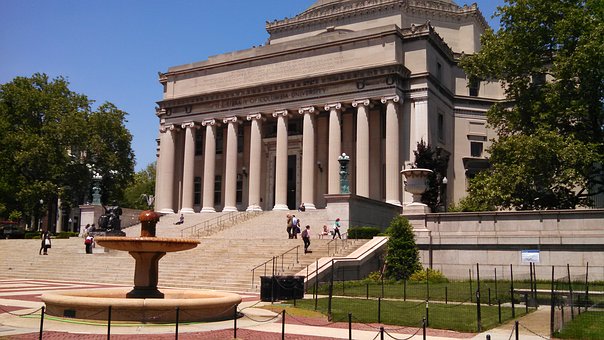America’s college admissions system is broken
The WSS examines how America’s college admissions system is broken due to plummeting acceptance rates, students prioritizing a school’s prestige over their own educational needs, the wealthy having special access to higher education, and standardized tests favoring those already at an advantage.
Like almost every lengthy conversation I have with my friends, our discussion reached the prospect of college applications, even though we are only rounding out our freshman year. My best friend reasons that she is striving for an elite university, such as Princeton or Harvard, for: the education. I chuckle and say, “If you only wanted an education, you would go to the University of Iowa. A big part of your interest is the prestige and its perceived benefits.” She scoffs a little, but can’t really refute me.
In what world do students emphasize prestige over education, acceptance rates to institutions dwindle below 5%, the rich and powerful have special access to higher education, and standardized tests, which are a major factor in college acceptances, favor those who are already advantaged? Welcome to the college admissions system in the United States today.
Students applying to Harvard in 1997 experienced a 12.3% rate of admission, but students in the 2021 admission cycle faced a staggeringly low acceptance rate at Harvard of 3.4% .
Acceptance to selective universities can seem like a shot in the dark to most, resulting in some desperate attempts at admission such as cheating on standardized tests, falsifying transcripts, and fabricating letters of recommendation. When universities are so sought after and exclusive, it creates a toxic environment in which students feel they can no longer rely on their own merit to get into the college of their dreams.
When faced with where to apply to college, many students fixate on the notoriety of a college, not necessarily its environment or other important factors. This, compounded with pressure from parents to seek an education at highly selective institutions, creates a situation where students apply to schools for the status that school may bring, not what matters to them as a student.
Whenever I discuss the college selection process with my parents, my dad seems incredulous that, as of now, I am not interested in applying to Harvard. “That’s crazy,” he always says. “If you get into Harvard, you go.” This reflects a rhetoric that is not uncommon: a school’s reputation is often paramount to what a student needs from their college education.
The college admissions system is also riddled with industries and practices that favor the wealthy and well connected. In America, college consultants, which generate nearly half a billion dollars a year, give those who can afford them an inside edge in college admissions. The chance of students’ acceptances also elevate when their families are alumni or able to donate large sums to the universities of their choosing.
Recently, illegal activity surrounding the college admissions system was exposed, outraging students around the country who were already disadvantaged in the college process. The Department of Justice outlined in 2019 that in a scheme run by a college-prep counselor, William Singer, parents paid Singer $25 million to bribe school officials to wrongly describe children as student athletes, thus granting them admission into highly selective institutions. Singer also facilitated the altering of students’ test scores.
This is inexcusable. In a system in which the outcome is already rigged in favor of a few, some were able to illegally benefit from their wealth, when students of average means scramble daily to figure out how to distinguish themselves as worthy applicants for selective schools.
If the college system wasn’t already preferential to a few wealthy students, standardized tests, such as the ACT and SAT, which are a major factor in determining a student’s eligibility, favor test-takers with resources.
A 2016 ACT report documented that the gap between students’ ACT scores from families making $80,000 or more and those making less was 4.1 points, a significant amount, considering ACT is scored on a scale of 1-36.
On the bright side, several strategies can work in tandem to remedy the United State’s broken college admissions system and improve equity.
To combat lowering acceptance rates and students prioritizing a school’s clout over their own educational needs, students should apply to fewer colleges and only the ones they are interested in attending. Also, the rankings of colleges should be abolished.
If students submit applications to fewer schools and only the ones they actually have a deep-rooted interest in, application rates will increase and students will attend schools that suit their needs. Without college rankings, there would be less of an obsession revolving around a school’s status and more focus on which schools personally appeal to students.
Requiring schools to disclose the percentage of applicants admitted per certain categories, such as legacies or donors, would introduce more transparency to the system. This would help hold colleges accountable to their favoritism and perhaps diminish the edge of certain applicants.
Finally, colleges must lessen the value standardized test scores play in admission because they undeniably advantage the privileged. Instead, schools should place greater importance on a student’s grades, rigor of course load, recommendation letters, and extracurricular pursuits.
Instead of enjoying our last few years at home before heading off to college, my friends and I anxiously focus on our future application process, how selective schools are becoming, and in which extra-curriculars we have to succeed. Conversations that start out relaxed can quickly feel competitive, with each person outlining all the steps they are taking for the perfect application, causing others to feel as if they are not doing enough.
As it stands, the college admissions system in the United States today is broken and evokes in students a sense of worry and uncertainty, when it should bring about hope and excitement. This system needs to be repaired, so students’ dreams of a quality education can become a reality.
Your donation will support the student journalists of West High School. Your contribution will allow us to purchase Scholarship Yearbooks, newsroom equipment and cover our annual website hosting costs.

(she/her) Lilly Graham is a senior at West, and this is her third year on staff. Lilly is the Managing Editor for the print edition. Outside of school,...



